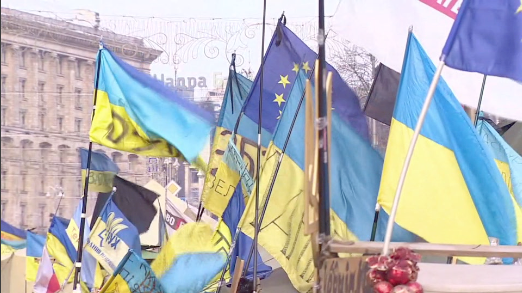The crisis in Ukraine continues as Russian troops occupy Crimea in Ukraine the and world leaders deadlock on how to handle the issue.
Protesting in Kiev against Ukraine’s pro-Russian government turned to rioting when Ukrainian Prime Minister Yanukovych ordered police forces to fire upon the protesters. The violence forced Yanukovych to flee to Russia and the pro-western opposition took over. Russian President Vladimir Putin refused to recognize the new government.
Russian troops began rolling in and seized operational control of the Crimean region in Ukraine without a fight. President Obama and Secretary of State John Kerry as well as other world leaders have condemned Putin, pulling out of the scheduled G8 summit in Russia and threatening economic sanctions if Russia does not cease it’s operations.
The situation in the Ukraine is more complicated than most Westerners realize. Not all Ukrainians are against Russian involvement, and many are very much in favor of it, such as Ukrainian LSU sophomore Ganna Boryshpol.
“I’m from the eastern side of Ukraine so I’m actually a little bit pro-Russia,” said Boryshpol. “They can help us a lot when it comes to the economy.”
Ukraine remains divided with many in eastern Ukraine and Crimea welcoming Russian influence and protesting the new government.
Crimea had formerly been a part of Russia until it was ceded to Ukraine in 1954. Many in Crimea still identify themselves as Russian.
Crisis in Ukraine
By Eric Toups
March 10, 2014

More to Discover


